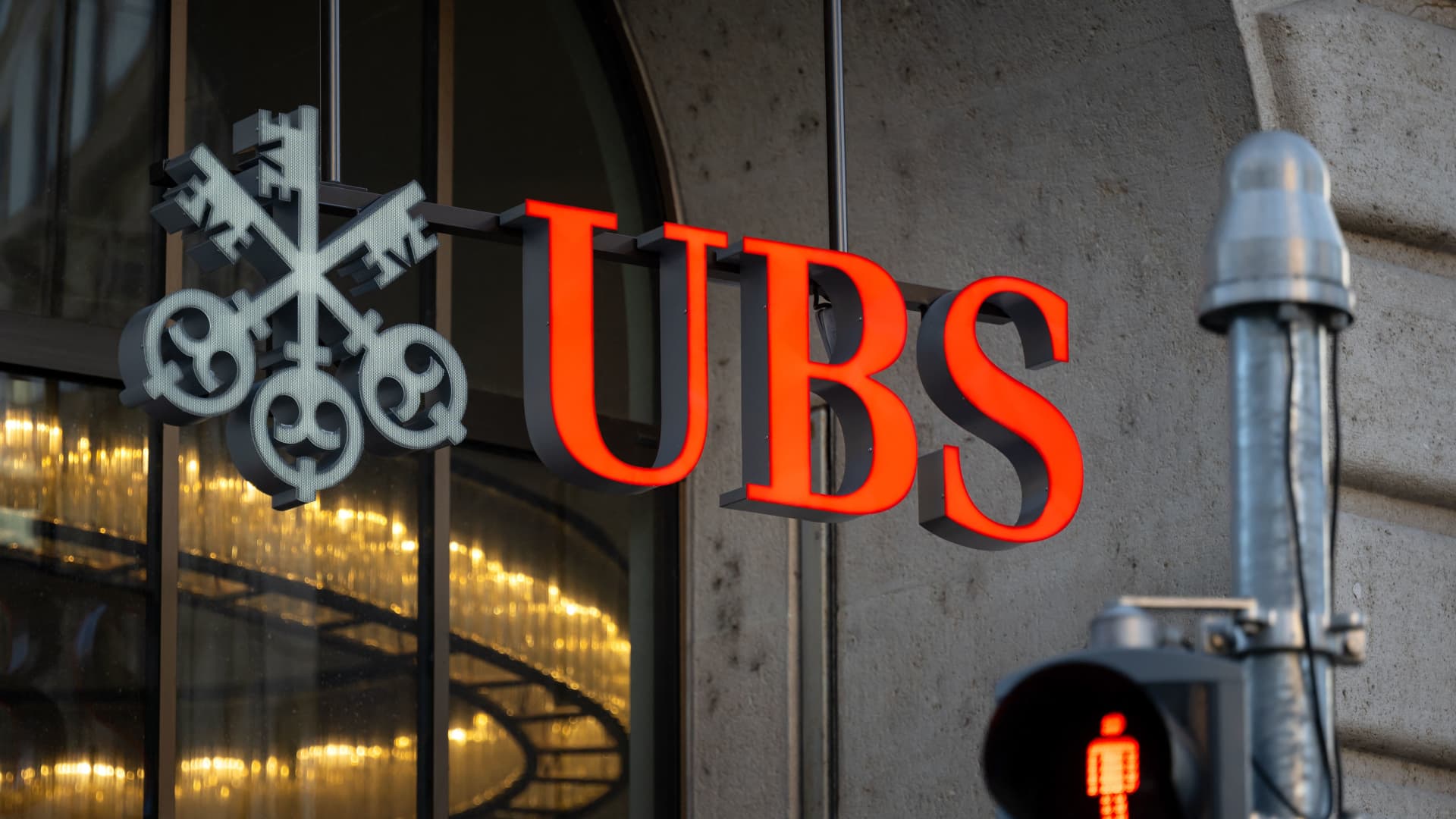UBS‘ fourth-quarter profit beat market expectations, but the Swiss banking giant reported a fall in revenues on the back of weaker client activity and warned of an “uncertain” year ahead.
The bank reported $1.7 billion of net income for the fourth quarter of last year, bringing its full-year profit to $7.6 billion in 2022. Analysts had expected UBS to post net income of $1.3 billion in the fourth quarter and of $7.3 billion for the year, according to Refinitiv data.
The bank’s Global Wealth Management unit posted a fourth-quarter increase in net interest income of 35% on the year, given higher deposit margins off the back of higher interest rates. Its Personal and Corporate Banking division also recorded a 21% year-on-year hike in net interest income over the same period, as a result of higher interest rates and loan revenues.
But market uncertainty hit the investment banking and asset management arms of the business. The former saw a 24% yearly drop in revenues, whereas asset management revenues fell by 31% year-on-year due to the “negative market performance and foreign currency effects.”
“The rate environment is helping the business on one side, and that offsets some of the lower activity that we see on the investment side,” CEO Ralph Hamers told CNBC’s Geoff Cutmore on Tuesday.
UBS reported fourth quarter and full-year earnings.
Fabrice Coffrini | Afp | Getty Images
He added that there had been a shift in the markets that put pressure on the investment side of the bank.
“We saw a move from what we would call micro focus, which is equity-focused, to macro focus, which is rates focused,” he said, noting that the Swiss bank was not able to benefit from that transition as much as some of its peers, given its smaller presence in the U.S.
Here are some other highlights from the results:
- CET 1 capital ratio, a measure of bank solvency, stood at 14.2%, down from 14.4% in the previous quarter;
- Total revenues dropped to $8 billion from $8.7 billion a year ago;
- Return on tangible equity, a measure of banks’ performance, rose to 13.2% at the end of the quarter, up from 10% a year ago.
‘Uncertain’ outlook
Looking ahead, the Swiss lender said that revenues for the first quarter of 2023 were set to be “positively influenced” by higher client activity and interest rates, as well as by the easing of Covid-19 restrictions in Asia.
However, it was cautious about the economic outlook more broadly, citing central bank activity as a potential catalyst for market volatility.
“While inflation may have peaked in the second half of 2022, and an energy crisis in Europe seems likely to be averted, the outlook for economic growth, asset valuations and market volatility remains highly uncertain, and central bank tightening may have an impact on market liquidity,” the bank said its earnings release.
UBS said it will be purchasing more of its own shares this year.
“We remain committed to a progressive dividend and expect to repurchase more than $5 billion of shares in 2023,” Hamers said in a statement accompanying the results.
Shares in the bank fell more than 2% in early European trade.
“UBS posted what we think are mixed fourth quarter results,” analysts at Jefferies said in a Tuesday note.
“Going through the details, our strong first impression gets tempered as the higher earnings are actually driven by some one-offs in revenues as well as a low tax rate. Underlying trends are more mixed,” they said.
UBS shares over the last 12 months versus those of Credit Suisse.
Image and article originally from www.cnbc.com. Read the original article here.

